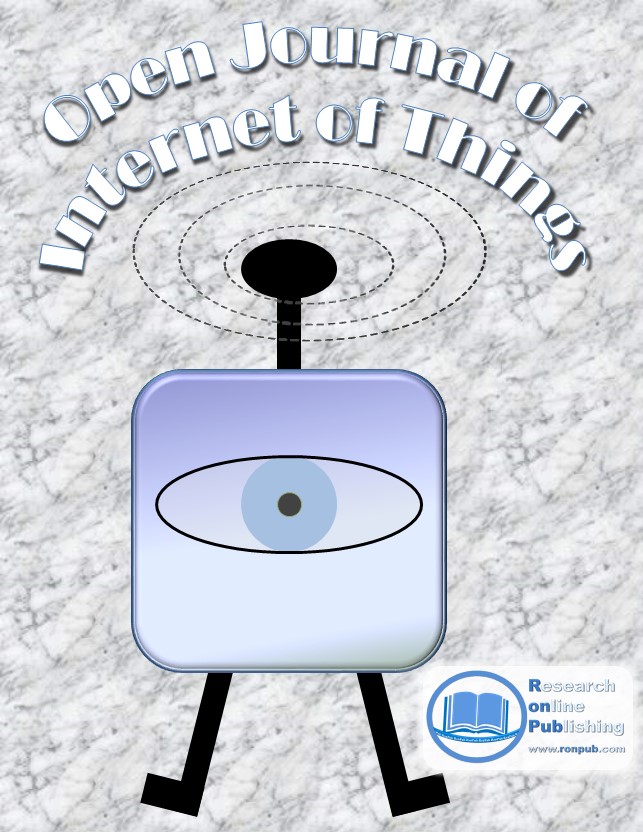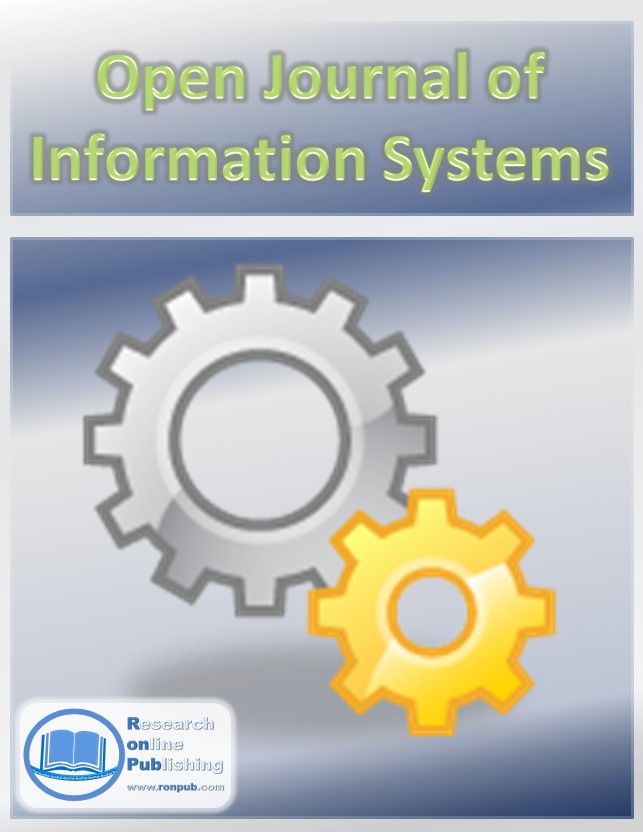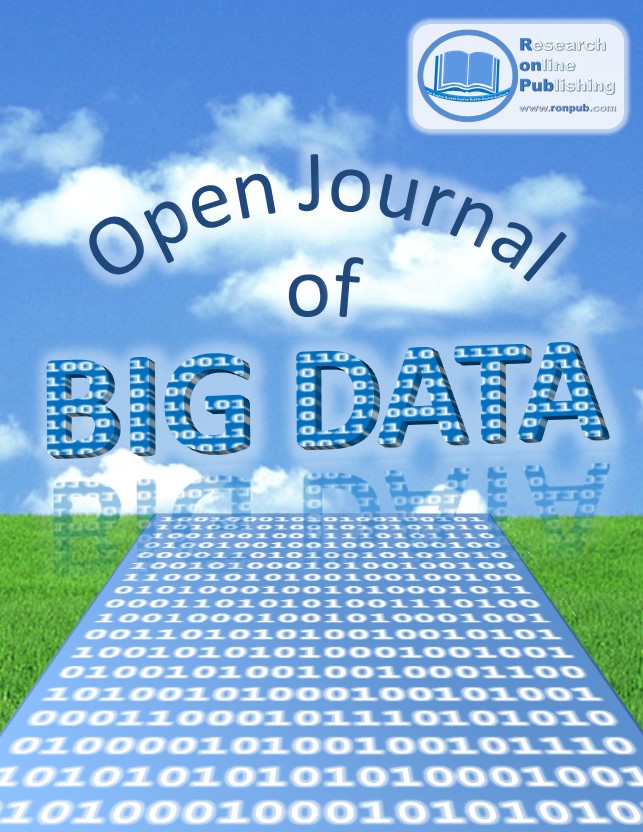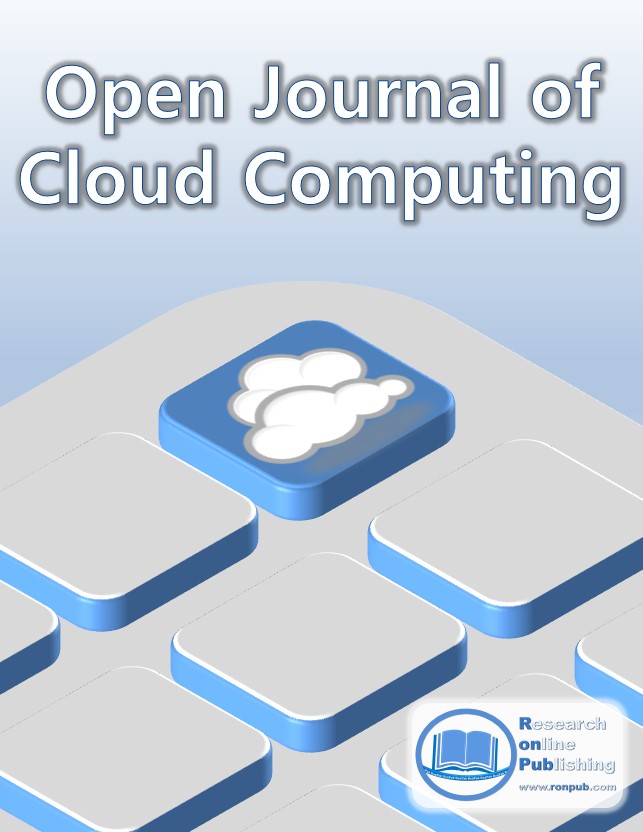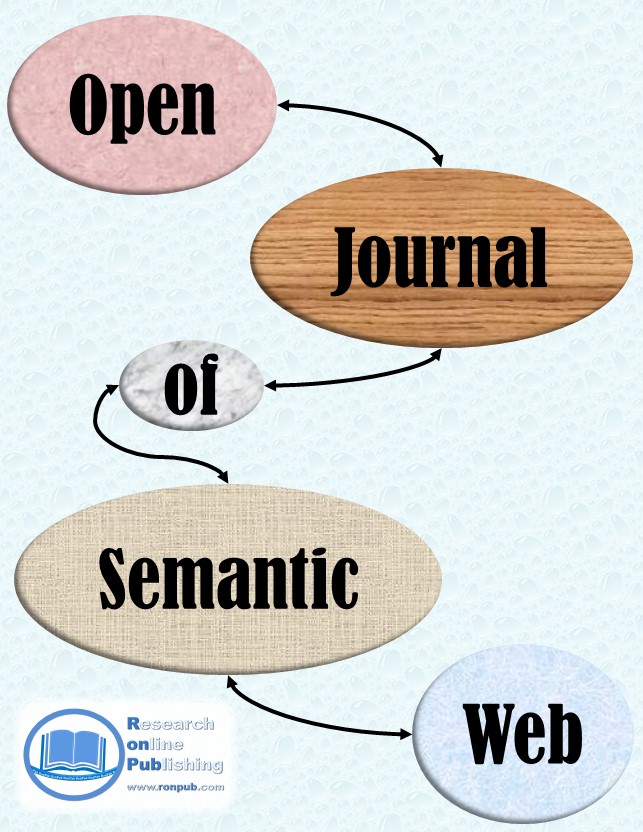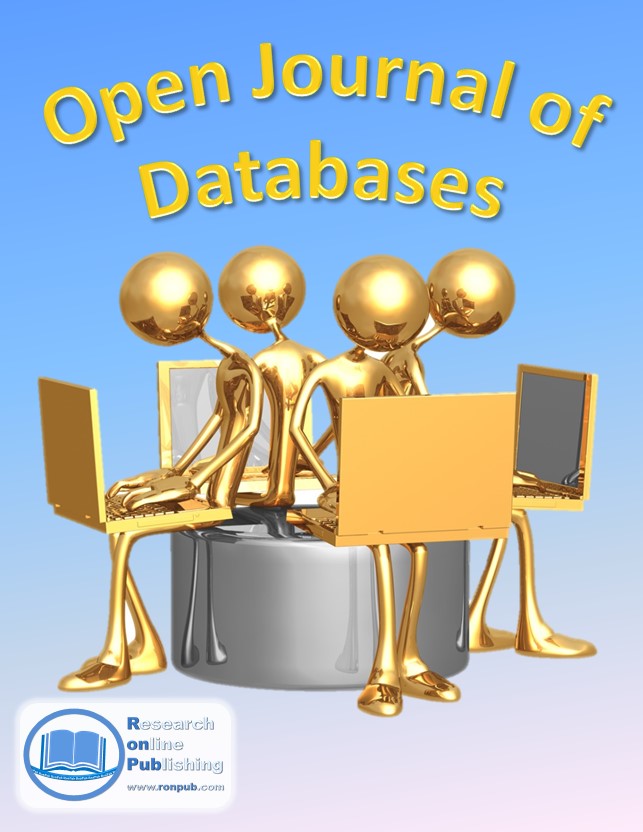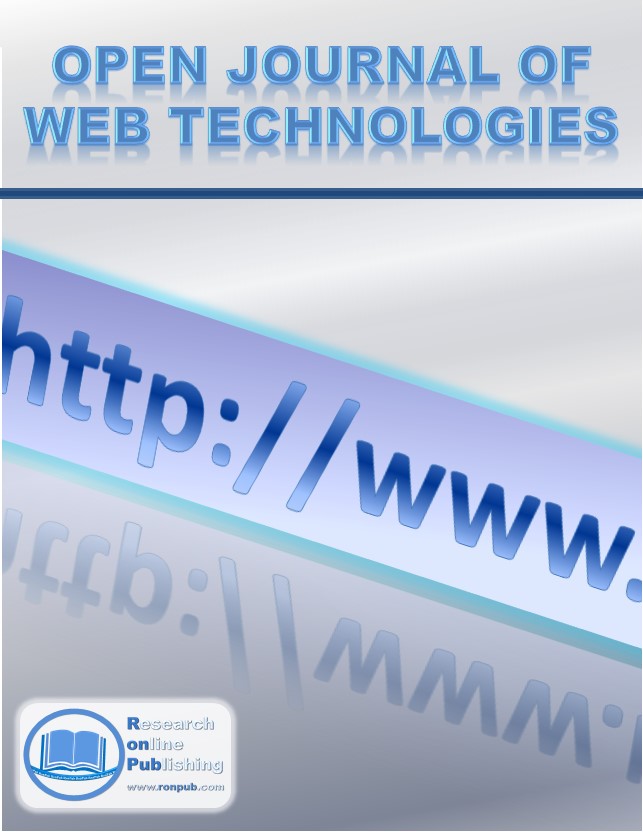RonPub -- Research Online Publishing
RonPub (Research online Publishing) is an academic publisher of online, open access, peer-reviewed journals. RonPub aims to provide a platform for researchers, developers, educators, and technical managers to share and exchange their research results worldwide.
Recently Published
Open Access
Christian Baun, Johannes Bouche
Open Journal of Cloud Computing (OJCC), 8(1), Pages 1-19, 2023, Downloads: 22444
Recently Published
Open Access
Space Cubes: Satellite On-Board Processing of Datacube Queries
Open Journal of Internet Of Things (OJIOT), 8(1), Pages 44-53, 2022, Downloads: 21616
Recently Published
Open Access
Towards Sustainable Smart Cities: Monitoring Air Quality and Comfort for Citizen Health
Jaime Fabian Arias Aguilar, Everton Gomede, Leonardo de Sousa Mendes
Open Journal of Internet Of Things (OJIOT), 9(1), Pages 1-25, 2024, Downloads: 385
Recently Published
Open Access
WoTHive: Enabling Syntactic and Semantic Discovery in the Web of Things
Andrea Cimmino, Raúl García-Castro
Open Journal of Internet Of Things (OJIOT), 8(1), Pages 54-65, 2022, Downloads: 22764
Top 31 of Downloaded Papers
Open Access
Definition and Categorization of Dew Computing
Open Journal of Cloud Computing (OJCC), 3(1), Pages 1-7, 2016, Downloads: 12821, Citations: 69
Recently Published
Open Access
IoT Hub as a Service (HaaS): Data-Oriented Environment for Interactive Smart Spaces
Ahmed E. Khaled, Rousol Al Goboori
Open Journal of Internet Of Things (OJIOT), 8(1), Pages 66-79, 2022, Downloads: 20626
Top 22 of Downloaded Papers
Open Access
Data Transfers in Hadoop: A Comparative Study
Ujjal Marjit, Kumar Sharma, Puspendu Mandal
Open Journal of Big Data (OJBD), 1(2), Pages 34-46, 2015, Downloads: 13389, Citations: 4
Recently Published
Open Access
Generating SPARQL-Constraints for Consistency Checking in Industry 4.0 Scenarios
Open Journal of Internet Of Things (OJIOT), 8(1), Pages 80-90, 2022, Downloads: 22046
Top 33 of Downloaded Papers
Open Access
Big Data in the Cloud: A Survey
Pedro Caldeira Neves, Jorge Bernardino
Open Journal of Big Data (OJBD), 1(2), Pages 1-18, 2015, Downloads: 12519, Citations: 14
Recently Published
Open Access
3D Histogram Based Anomaly Detection for Categorical Sensor Data in Internet of Things
Peng Yuan, Lu-An Tang, Haifeng Chen, Moto Sato, Kevin Woodward
Open Journal of Internet Of Things (OJIOT), 8(1), Pages 32-43, 2022, Downloads: 21724
Recently Published
Open Access
Development and Evaluation of a Publish/Subscribe IoT Data Sharing Model with LoRaWAN
Juan Leon, Yacoub Hanna, Kemal Akkaya
Open Journal of Internet Of Things (OJIOT), 8(1), Pages 7-19, 2022, Downloads: 20481
Top 29 of Downloaded Papers
Open Access
A Self-Optimizing Cloud Computing System for Distributed Storage and Processing of Semantic Web Data
Sven Groppe, Johannes Blume, Dennis Heinrich, Stefan Werner
Open Journal of Cloud Computing (OJCC), 1(2), Pages 1-14, 2014, Downloads: 12990, Citations: 2
Recently Published
Open Access
Contributions to the 6th Workshop on Very Large Internet of Things (VLIoT 2022)
Sven Groppe, Sanju Tiwari, Shui Yu
Open Journal of Internet Of Things (OJIOT), 8(1), Pages 1-6, 2022, Downloads: 21388
Top 1 of Downloaded Papers
Open Access
Which NoSQL Database? A Performance Overview
Veronika Abramova, Jorge Bernardino, Pedro Furtado
Open Journal of Databases (OJDB), 1(2), Pages 17-24, 2014, Downloads: 28838, Citations: 89
Recently Published
Open Access
IoT-PMA: Patient Health Monitoring in Medical IoT Ecosystems
Ariane Ziehn, Christian Mandel, Kathrin Stich, Rolf Dembinski, Karin Hochbaum, Steffen Zeuch, Volker Markl
Open Journal of Internet Of Things (OJIOT), 8(1), Pages 20-31, 2022, Downloads: 25922
RonPub Is Open Access:
RonPub publishes all of its journals under the open access model, defined under Budapest, Berlin, and Bethesda open access declarations:
- All articles published by RonPub is fully open access and online available to readers free of charge.
- All open access articles are distributed under Creative Commons Attribution License, which permits unrestricted use, distribution and reproduction free of charge in any medium, provided that the original work is properly cited.
- Authors retain all copyright to their work.
- Authors may also publish the publisher's version of their paper on any repository or website.
RonPub Is Cost-Effective:
To be able to provide open access journals, RonPub defray publishing cost by charging a one-time publication fee for each accepted article. One of RonPub objectives is providing a fast and high-quality but lower-cost publishing service. In order to ensure that the fee is never a barrier to publication, RonPub offers a fee waiver for authors who do not have funds to cover publication fees. We also offer a partial fee waiver for editors and reviewers of RonPub as as reward for their work. See the respective Journal webpage for the concrete publication fee.
RonPub Publication Criteria
What we are most concerned about is the quality, not quantity, of publications. We only publish high-quality scholarly papers. Publication Criteria describes the criteria that should be met for a contribution to be acceptable for publication in RonPub journals.
RonPub Publication Ethics Statement:
In order to ensure the publishing quality and the reputation of the publisher, it is important that all parties involved in the act of publishing adhere to the standards of the publishing ethical behaviour. To verify the originality of submissions, we use Plagiarism Detection Tools, like Anti-Plagiarism, PaperRater, Viper, to check the content of manuscripts submitted to our journals against existing publications.
RonPub follows the Code of Conduct of the Committee on Publication Ethics (COPE), and deals with the cases of misconduct according to the COPE Flowcharts.
Long-Term Preservation in the German National Library
Our publications are archived and permanently-preserved in the German National Library. The publications, which are archived in the German National Library, are not only long-term preserved but also accessible in the future, because the German National Library ensures that digital data saved in the old formats can be viewed and used on current computer systems in the same way they were on the original systems which are long obsolete.
Where is RonPub?
RonPub is a registered corporation in Lübeck, Germany. Lübeck is a beautiful coastal city, owing wonderful sea resorts and sandy beaches as well as good restaurants. It is located in northern Germany and is 60 kilometer away from Hamburg.

